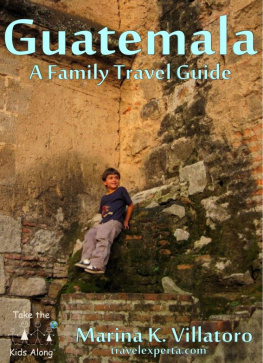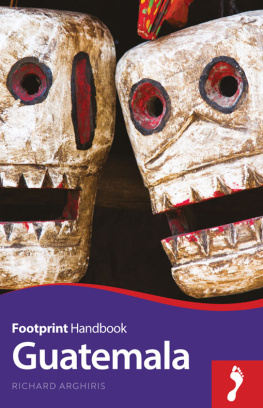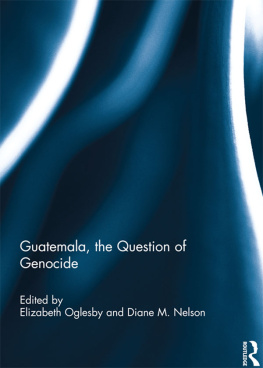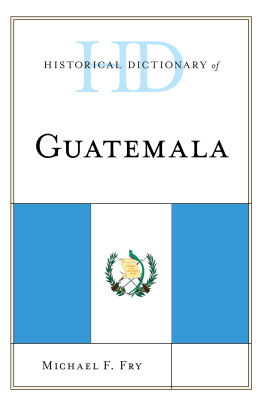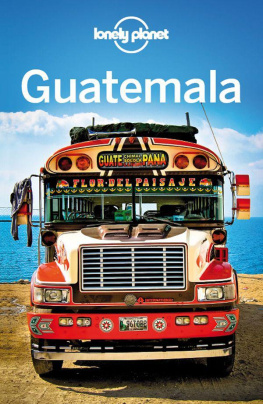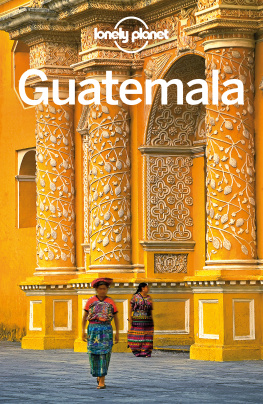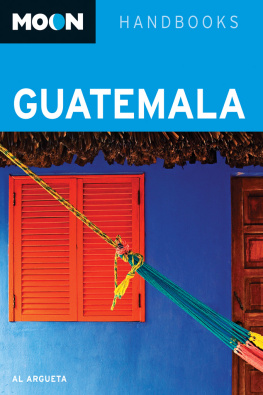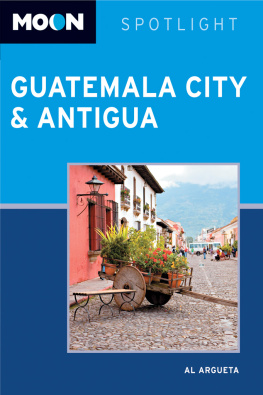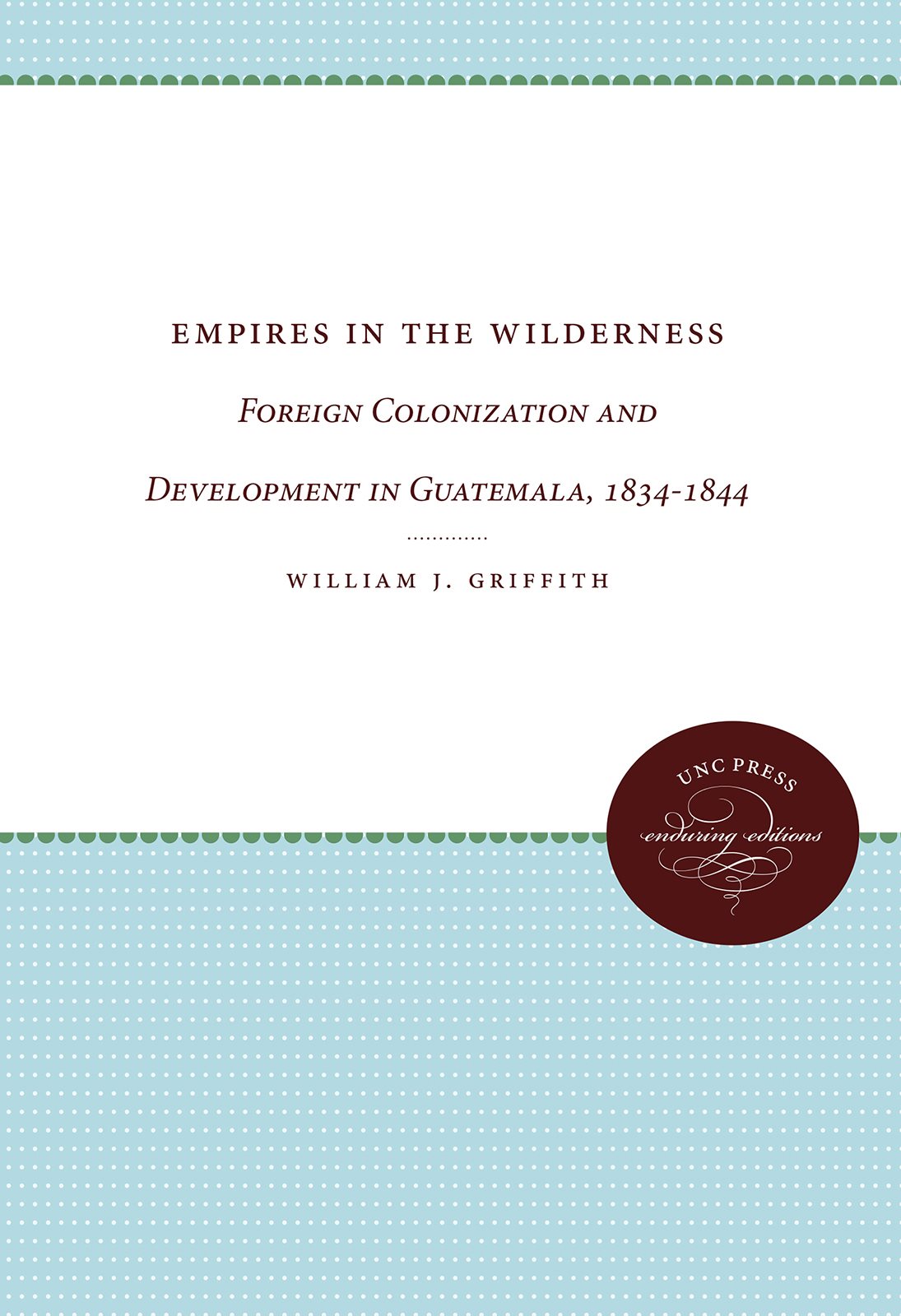PREFACE
Happily, this study is concerned with no rival in duration to the Hundred Years War, for the time elapsed in its preparation exactly coincides with that of the period covered. It was conceived as an inquiry of modest scope into an ostensibly uncomplicated arrangement for massive foreign colonization of Guatemala, but only slight investigation disclosed that the plan was neither so simple nor so localized as supposed. As the complexity of the subject became evident and the search for relevant material broadened in consequence, the project enlarged to several times its anticipated size, and the period of investigation lengthened in proportion.
The topic was selected as a contribution to one of the themes chosen for investigation in the Tulane faculty-student interdisciplinary Latin American area seminar. It was suggested by a few tantalizing sentences in Chester Lloyd Joness Guatemala, Past and Present and the third volume of Hubert Howe Bancrofts History of Central America. These terse passages record an extraordinary transaction in which the government of Guatemala in 1834 granted to a London colonization company (the Eastern Coast of Central America Commercial and Agricultural Company) some fifteen million acres of public lands. Few other historical works accord this arresting action by the government of Dr. Mariano Glvez more than passing remark, and fewer still note that almost simultaneous companion grants virtually completed the transfer of the states unclaimed lands to empresarios who agreed to colonize them with foreign immigrants. The only extensive treatment of the topic, that of Pedro Prez Valenzuela in his Santo Toms de Castilla: Apuntes para la historia de las colonizaciones en la costa atlntica (1956), largely misconstrues the effort for want of relevant documentation and makes it principally a test in patriotism on which low marks are assigned to the Liberal Chief of State. Jorge Luis Arriola gives some attention to the subject in one chapter of his Glvez en la encrucijada (1961), but with much the same emphasis. This study examines the colonization projects as a part of the grand design formed by Galvez for the development of his state.
It has been impossible to bring to fruition the most ambitious hopes raised as the project took form. The relationship between the Guatemalan government and the London company suggested the possibility of attempting an integrated case study of a Latin American effort to achieve economic development and of European capital employed in speculative New World enterprise during the first decades of independence. Materials appropriate to such treatment, however, could not always be discovered.
To establish a solidly documented record of operations by the Eastern Coast of Central America Commercial and Agricultural Company proved impossible. The frivolous character of the enterprise, at least in its early years, apparently determined that by default if not by deliberate intent of the directors it would leave, even in the public realm, the scantest possible evidence of its existence. The administrations that succeeded the first adventurers produced a more informative public record of their transactions, but the Companys papers seem not to have survived, and by coincidence the void in the archives of Glyns, the prestigious banking house it employed, includes the years during which the directors maintained their account. The Companys activities, therefore, could be reconstructed only in such areas and with such degree of completeness as were made possible by its own publications, occasional newspaper notices, and documents relating to its affairs that found their way into official archives in Great Britain, Belgium, British Honduras, and Guatemala. These materials were sufficient to form a circumstantial sketch of Company operations, but they did not afford an adequate basis for an exhaustive examination of its role as a gatherer and investor abroad of European capital.
The absence of certain desirable evidence impaired less drastically the study of the colonization projects as devices for achieving development. No personal papers came to light, either for Galvez or for any other important figure of his time, which might have recorded the intimate details of formulation, adoption, and attempted execution of the colonization scheme. The evidence on these subjects, therefore, came principally from official documents. These sources, fortunately, supplied abundant material for exposition of the official plan formulated by Galvez for achieving development by means of foreign colonization and of controversies produced by specific features of the contracts he approved. Authorship of ideas, evolution of thought and of attitudes by individuals and by groups, conflicts of interest and of principle, and the source of contrary opinions, among other topics, might have been more clearly illuminated had personal papers been available; their absence, however, does not rob of merit the synthesis made from public documents. Although more generalized and less precise than might be desired, it still is valid.
The attempt to assess the colonization projects as instruments of national development is in no way intended to assert expertise on that complex subject. For that matter, no claim is laid even to mastery of the technical literature in the development field. It seemed sufficient for the purposes of this work to accept as a basis for comparison and comment a popular synthesis of some of the views generally accepted by contemporary students of the process.
Fidelity to contemporary purport required use of some relatively unfamiliar and specialized terms. Rather than to insert definitions and explanations of these words at the scattered points in the text where they first appear, it seemed preferable for easy reference to bring them together in a glossary.
Note should perhaps be taken in passing of special circumstances that resulted in deviations from the usual form of citation for two collections now found in the Archivo Nacional of Guatemala. The records of the Guatemalan Congress were opened for my use immediately after they had been deposited in the Archivo Nacional and before they could be reclassified. My citations therefore identify the documents by the categories and symbols assigned while they were in the possession of Congress, followed by the word unclassified. A similar observation applies to the archives of the Department of Baja Verapaz consulted in Salama during the summer of 1956 several years before they were transferred to Guatemala City. A hasty recheck of the documents on the day they were delivered to the Archivo Nacional revealed much deterioration during the interval: some were half mouldered away with dampness, and others were entirely missing. My citations are to documents and to classifications as they existed at Salama in 1956.
The research abroad was made possible by assistance from several sources. I gratefully acknowledge grants from the Middle American Research Institute of Tulane University for several summers of work in Central America and from the Tulane Council on Research and the Social Science Research Council for a semester of investigation in Europe. While its cruise ships were still in operation, the United
Fruit Company twice provided summer transportation to and from Guatemala.


